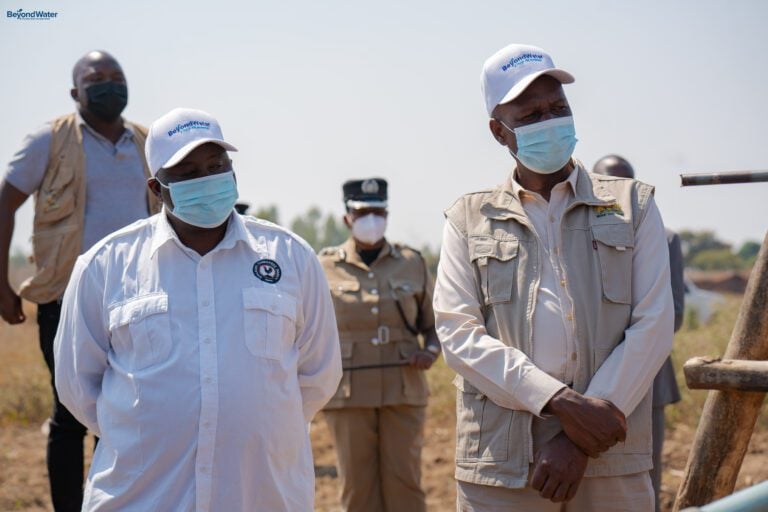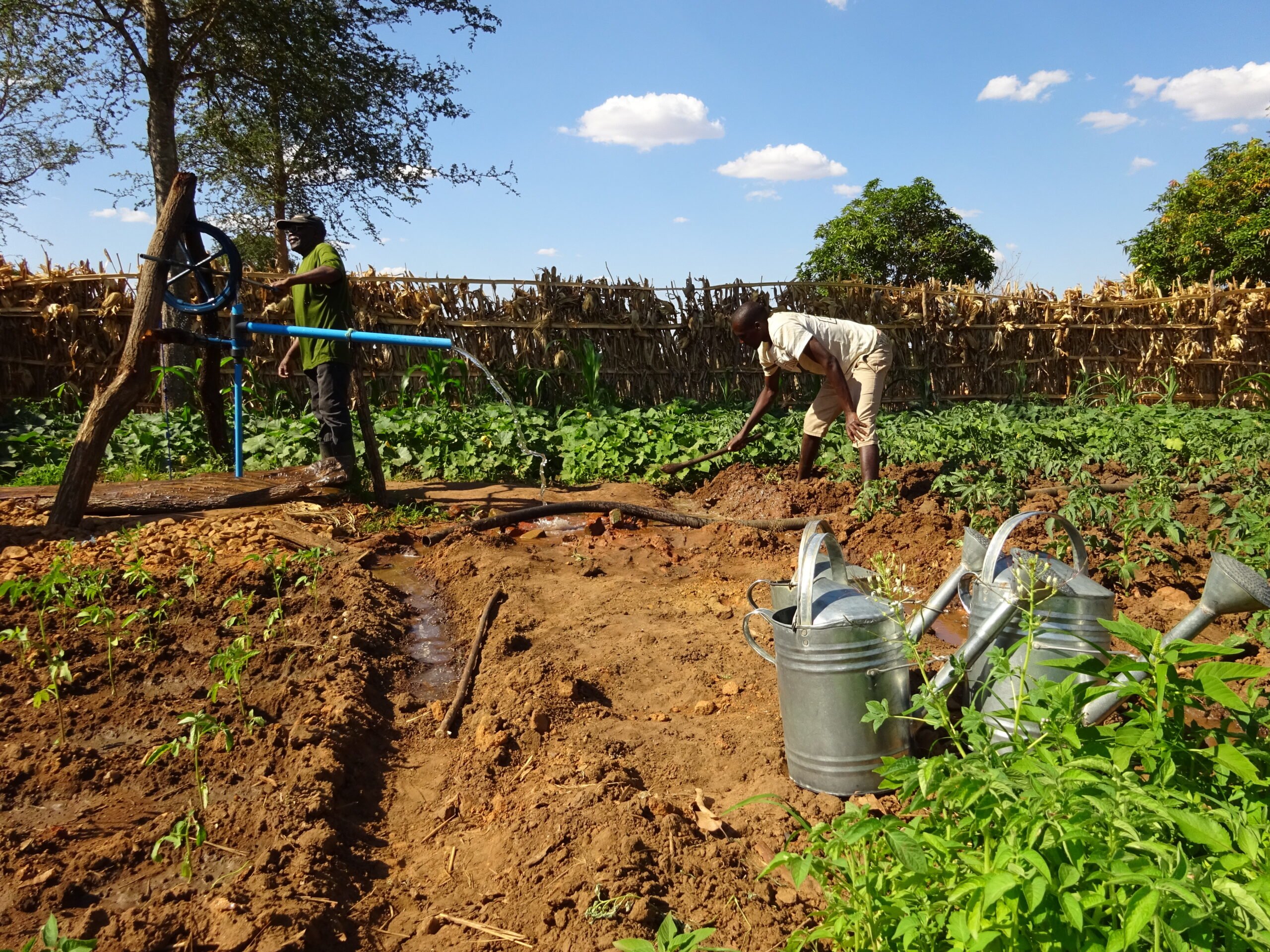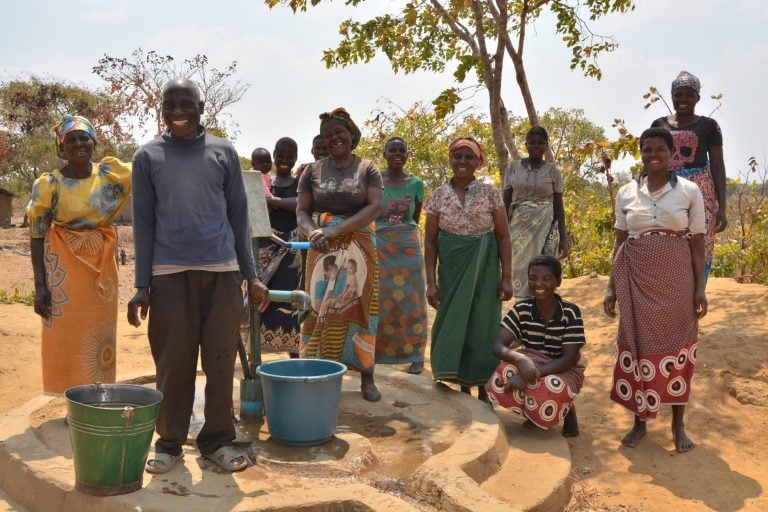supporting food security through sustainable irrigation for farmers
We all know that safe drinking water is fundamental to a healthy life. Water also has a key role to play in cultivating crops to sustain poor rural families and communities in Malawi. That’s why Pump Aid supports food security and livelihoods through sustainable irrigation for small scale farmers, Pump Aid Country Director Simon Msukwa explains how.
Small scale farming in Malawi
Malawi is a beautiful landlocked country. The people have a reputation for friendliness and generosity. It’s also a country where the majority of the population live in rural areas. About 17 million out of a total population of 20 million. Most are reliant on small scale subsistence farming for food security and income. Growing enough crops to feed the family with a little left over to sell onto local markets. This is highly precarious and every year between 30 to 40% of the population are classified as food insecure. The effects of climate change, flooding and drought, are also having a damaging impact on farmers ability to harvest enough food.

Malawi has two main weather seasons. The rainy season and the dry. Most farmers cultivate in the rainy season only. This is called rain fed agriculture. Yet even in the dry season, growing temperatures are good and shallow ground water reserves are available. This means that if you have the ability to pump water from the ground you can irrigate your crops and you can double or triple your annual harvest volume!
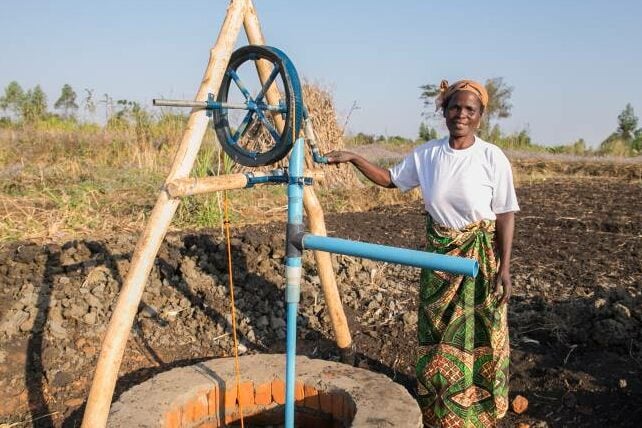
Irrigation for a small scale farmer cultivating half an acre can be done effectively and easily by a hand powered pump. But a big challenge is availability and affordability of appropriate irrigation pumps. Another challenge is that small scale farmers are often offered irrigation as part of a large scale group schemes supported by external agencies. Experience over decades now has shown these schemes to be short lasting and unsustainable because there’s no ownership and no one takes responsibility for looking after the infrastructure. They fail within a few years leaving the farmers to go back to unproductive rain fed agriculture.
These aren’t impossible challenges to solve and over the last 5 years Pump Aid has been developing an initiative which offers low cost pumps to small scale farmers and groups, which they invest in themselves.
Pump Aid’s approach: low cost irrigation pumps
Pump Aid manufactures (creating local jobs) and sells (creating more jobs) these very low cost rope and washer irrigation pumps. We set the price of the pump so that the farmers or farmers group can repay within just one additional harvest. To sell at this price we subsidise the cost and we ask our supporters to help subsidise the cost of the pump (less than 50%). Over time, as we produce and sell more pumps, the cost comes down and we reduce the amount of subsidy required.

You might ask why we don’t just give the pump away like other agencies. Speaking from experience, it is essential to promote sustainability and one of the best ways to ensure sustainability is when someone invests in an asset themselves. We know from our own evidence and that of others, that when a person or group invests their own resources into an asset such as an irrigation pump they look after it better, they use it more effectively and it lasts longer. In the jargon this is called farmer led irrigation. It gives people choice and it allows then to create their own pathway out of poverty.
We don’t just sell pumps to farmers but we also provide support and training on climate resilient farming: what crops to sow, how to irrigate effectively, promote recharge of ground water, composting, mulching and soil restoration.
Offering farmers the opportunity to invest in their own low cost irrigation and providing the support to mitigate the effects of climate change, gives farmers and their families a real chance to step out of poverty and improve food security.
If you’d like to support irrigation and food security this March, you’ll be glad to hear that any donation made in March will be doubled up to a total of £30,000! With this funding, we could support 30 women’s farmers groups, 3 entrepreneurs and 300 children at 3 CBCCs.
